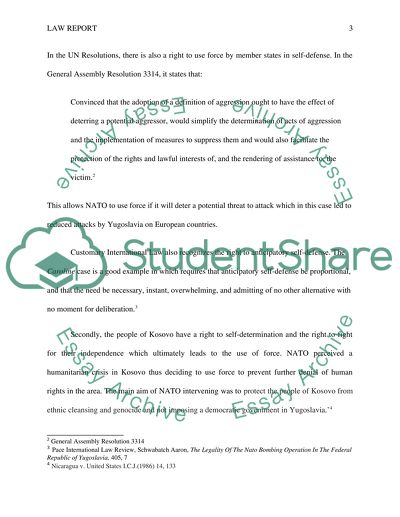Cite this document
(“Imagine that the International Court of Justice has accepted Essay”, n.d.)
Imagine that the International Court of Justice has accepted Essay. Retrieved from https://studentshare.org/law/1617804-imagine-that-the-international-court-of-justice-has-accepted-jurisdiction-in-the-case-concerning-the-legality-of-the-use-of-force-serbia-and-montenegrov-united-kingdompresent-the-below-arguments-as-an-advocate-taking-the-position-of-the-uk
Imagine that the International Court of Justice has accepted Essay. Retrieved from https://studentshare.org/law/1617804-imagine-that-the-international-court-of-justice-has-accepted-jurisdiction-in-the-case-concerning-the-legality-of-the-use-of-force-serbia-and-montenegrov-united-kingdompresent-the-below-arguments-as-an-advocate-taking-the-position-of-the-uk
(Imagine That the International Court of Justice Has Accepted Essay)
Imagine That the International Court of Justice Has Accepted Essay. https://studentshare.org/law/1617804-imagine-that-the-international-court-of-justice-has-accepted-jurisdiction-in-the-case-concerning-the-legality-of-the-use-of-force-serbia-and-montenegrov-united-kingdompresent-the-below-arguments-as-an-advocate-taking-the-position-of-the-uk.
Imagine That the International Court of Justice Has Accepted Essay. https://studentshare.org/law/1617804-imagine-that-the-international-court-of-justice-has-accepted-jurisdiction-in-the-case-concerning-the-legality-of-the-use-of-force-serbia-and-montenegrov-united-kingdompresent-the-below-arguments-as-an-advocate-taking-the-position-of-the-uk.
“Imagine That the International Court of Justice Has Accepted Essay”, n.d. https://studentshare.org/law/1617804-imagine-that-the-international-court-of-justice-has-accepted-jurisdiction-in-the-case-concerning-the-legality-of-the-use-of-force-serbia-and-montenegrov-united-kingdompresent-the-below-arguments-as-an-advocate-taking-the-position-of-the-uk.


